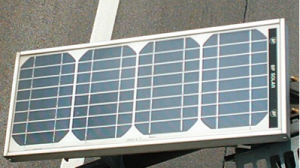By Rich Bowden:
The news that BP Solar will close its global distribution for residential solar panels and related PV products in favour of large scale projects has raised eyebrows amongst solar analysts throughout the world.
The announcement came after the company had been in the business of marketing PV products for thirty years, making it one of the world’s acknowledged leaders in this field. A company spokesperson was reported by wire news agencies as saying late last week that “…we think we can have a much stronger business going forward focusing on developing projects,” as he added that the company is now looking to concentrate its interest in this field.
But what does this mean for Australia? Well not quite as much as other affected countries although there will be some impact, said solar commentators this week. The company had begun scaling back its residential operations in Australia for a number of years before moving its manufacturing operations to Asia several years ago, according to the ClimateSpectator’sGilesParkinson. He added that the company’s market share in these operations had dwindled as a result.
“ A decade ago it was estimated to have had more than 80 per cent of the local market, but holds less than 5 per cent of the market now. Analysts think it has revenues of at least $30 million, and about 20 staff will be affected,” he said.
Speculation has been that BP Solar were unable to compete on price for solar modules with the influx of cheaper models especially from China.
Nigel Morris, director of SolarBusinessServices, friend of SolarQuotes and a former BP Solar employee, explained in a July 21 post. “Although the details behind the divisional closure are scant, it would be a pretty safe bet that the pressure that is being brought to bear on most of the premium brands in the PV market through falling demand, price and margin has taken a big green scalp.”
However as one section of the company’s work winds down, another powers up and this is definitely the case in Australia.
An example of the type of large scale work BP Solar will concentrate on in this country is the 150MW Moree Solar Farm in the NSW Tablelands. The company, as part of a consortium with Fotowatio Renewable Ventures (FRV) and Pacific Hydro, won the government contract in June. The solar farm comes under the federal government’s $1.5 billion Solar Flagships Program, an initiative aimed at providing funding for the construction of a number of solar-generated power stations throughout Australia.
BP Solar’s Tony Stocken, a director of MoreeSolarFarm gave a hint of the company’s priorities when he said in a June company statement following the announcement of the winning tender: “The Moree Solar Farm will pave the way for more utility scale solar power production in Australia by demonstrating that this proven technology has an important role to play helping Australia transition to a low carbon emission future.”
So fret not SolarQuotes readers. BP Solar’s future seems bright – as long as you don’t want their solar panels on your home!
Are you going to mourn the loss of BP Solar Panels? Tell the world on our FacebookPage!


 RSS - Posts
RSS - Posts



We purchased BP solar panels 10 years ago in Qld Australia, we went with BP cause the sale pitch was “BP is a global company, unlike local guys we wont go out of business” and “our panels are self Isolating so if one gets damaged and stops working the others keep working” For 9 panels and an inverter is cost $18000.00 yes 18 Thousand, We were told it would take about 10 years to start making money back but as we were in it for the long term it would be a good pay off. 8 years after install our power bill AFTER solar deductions is still $1000 per 1/4 and our feed in rate is 54c , we are now taking off all the BP panels and installing 30 Jinko panels for $5000.00 (inc inverter)